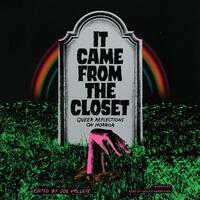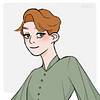Take a photo of a barcode or cover
dark
emotional
reflective
medium-paced
"It Came from the Closet" is a collection of memoirs that seek to view and understand queerness through the lens of horror, and vice versa. I went into this book expecting to really love it, and I left it with mostly mixed feelings.
There were some essays that I really enjoyed because they tried to break down the queer subtext of horror movies and came across as somewhat analytical, which is what I had been looking for when I picked this book up. Some of the other essays were less interested in an analytical approach and were more interested in the memoir angle, as in they often paralleled scenes from horror movies to their queerness and personal experiences. The essays that were more memoir-like were often hit or miss for me, some of them I found to be really engaging, whereas others felt like this could have been published in any other essay collection if it were not for the occasional references to horror movies.
And there was one essay that I really, really, *really* didn't like, but I'm not going to dwell on that.
All in all, this collection was fine. Sometimes I really enjoyed it, other times it didn't really feel like my cup of tea. That said, I would recommend it, depending on the person, because a lot of these essays offer new and (sometimes) unique perspectives on horror and queerness and other marginalized identities, and how they intertwine
There were some essays that I really enjoyed because they tried to break down the queer subtext of horror movies and came across as somewhat analytical, which is what I had been looking for when I picked this book up. Some of the other essays were less interested in an analytical approach and were more interested in the memoir angle, as in they often paralleled scenes from horror movies to their queerness and personal experiences. The essays that were more memoir-like were often hit or miss for me, some of them I found to be really engaging, whereas others felt like this could have been published in any other essay collection if it were not for the occasional references to horror movies.
And there was one essay that I really, really, *really* didn't like, but I'm not going to dwell on that.
All in all, this collection was fine. Sometimes I really enjoyed it, other times it didn't really feel like my cup of tea. That said, I would recommend it, depending on the person, because a lot of these essays offer new and (sometimes) unique perspectives on horror and queerness and other marginalized identities, and how they intertwine
Minor: Domestic abuse, Sexual harassment
TW for domestic abuse in "Bad Hombre" by Sarah Fonesca. TW for a predatory interaction between a child and an adult in "Long Nights in the Dark" by Richard Scott Larson.
challenging
reflective
Raw, insightful, and eye-opening, this anthology of essays examining and reflecting on horror movies through queer authors’ personal points of view is a truly fascinating read. Plus, thanks to this book I’ve got a list of new movies I’m excited to watch this spooky season!
CW: homophobia, transphobia, racism, sexism, abuse and sexual abuse (including of a minor), body horror
CW: homophobia, transphobia, racism, sexism, abuse and sexual abuse (including of a minor), body horror
dark
emotional
informative
reflective
slow-paced
As a queer horror fan, mildly obsessed the idea of the inherent queerness of horror as a genre, as well as queer readings of horror movies in general, I went into this expecting a far more analytical look at horror movies, as seen through a queer lens. Contrary to expectation, this anthology centers more so on the contributors' personal life stories and how they connect to these experiences and relate to them through an exploration of horror.
Although unexpected, that may be my fault for not looking too much into this collection prior to reading, and a number of the essays were still incredibly interesting and engaging. It is not an uncommon experience for queer people to see ourselves reflected in horror - reflected in the monster more often than not. This anthology provided an interesting look into how queer people are able to relate our life experiences to media, and the strange relationship this can form with a genre that has a long history of being both exploitative and exploratory of our identities.
As queer individuals we are able to relate to the monster because in these movies that is often exactly how we are presented. Queerness is the shark lurking in the water, the demon possessing a body that is not its own, the monster hiding behind a mask. As a queer audience we must reckon with our representation solely in the role of the villain or the victim that falls prey to them, and the empathy we hold in our hearts for both. The dichotomy present in this relationship with the horror genre, that of both celebrating and relating to these characters all whilst being undeniably aware of the problematic elements of their portrayal, is explored wonderfully throughout this collection.
As with all anthologies, the quality and enjoyment of different essays fluctuated depending on the author. My personal favorites include Sumiko Saulson's 'Centered and Seen' (Candyman); Spencer William's 'Sight Unseen' (The Blair Witch Project); Jude Ellison S. Doyle's 'The Healed Body' (In My Skin/ Dans ma peau); and Viet Dinh's 'Notes on Sleepaway Camp' (Sleepaway Camp).
I was thoroughly disappointed with Will Stockton's 'Good Guy's, Dolls' (Child's Play), which came off as deeply exploitative of his son, who I am unsure ever consented to having his experiences written about and published. Although I'm sure names were changed for the purposes of publication, I can only imagine what the people in Stockton's life must think about the demeaning way he writes about the clearly traumatized child in his care.
Overall, I think the title 'Queer Reflections on Horror' might be a bit misleading. A more accurate title might be something along the lines of 'Reflections on Queerness Relating to Horror'. Some essays resonated with me deeply, whilst others seemed to barely draw a connection to the movie they were supposedly meant to discuss.
I can never seem to bring myself to rate anthologies like this above 3 stars, simply because of the vast variance of quality between submissions. At the very least, I got some great horror recs out of it.
Although unexpected, that may be my fault for not looking too much into this collection prior to reading, and a number of the essays were still incredibly interesting and engaging. It is not an uncommon experience for queer people to see ourselves reflected in horror - reflected in the monster more often than not. This anthology provided an interesting look into how queer people are able to relate our life experiences to media, and the strange relationship this can form with a genre that has a long history of being both exploitative and exploratory of our identities.
As queer individuals we are able to relate to the monster because in these movies that is often exactly how we are presented. Queerness is the shark lurking in the water, the demon possessing a body that is not its own, the monster hiding behind a mask. As a queer audience we must reckon with our representation solely in the role of the villain or the victim that falls prey to them, and the empathy we hold in our hearts for both. The dichotomy present in this relationship with the horror genre, that of both celebrating and relating to these characters all whilst being undeniably aware of the problematic elements of their portrayal, is explored wonderfully throughout this collection.
As with all anthologies, the quality and enjoyment of different essays fluctuated depending on the author. My personal favorites include Sumiko Saulson's 'Centered and Seen' (Candyman); Spencer William's 'Sight Unseen' (The Blair Witch Project); Jude Ellison S. Doyle's 'The Healed Body' (In My Skin/ Dans ma peau); and Viet Dinh's 'Notes on Sleepaway Camp' (Sleepaway Camp).
I was thoroughly disappointed with Will Stockton's 'Good Guy's, Dolls' (Child's Play), which came off as deeply exploitative of his son, who I am unsure ever consented to having his experiences written about and published. Although I'm sure names were changed for the purposes of publication, I can only imagine what the people in Stockton's life must think about the demeaning way he writes about the clearly traumatized child in his care.
Overall, I think the title 'Queer Reflections on Horror' might be a bit misleading. A more accurate title might be something along the lines of 'Reflections on Queerness Relating to Horror'. Some essays resonated with me deeply, whilst others seemed to barely draw a connection to the movie they were supposedly meant to discuss.
I can never seem to bring myself to rate anthologies like this above 3 stars, simply because of the vast variance of quality between submissions. At the very least, I got some great horror recs out of it.
reflective
tense
medium-paced
dark
emotional
informative
reflective
medium-paced
emotional
funny
reflective
medium-paced
really interesting, i want to read more stuff like this!
emotional
hopeful
informative
reflective
medium-paced
Wonderful reflections from a diverse range of queer stories; perfect for a queer horror film lover






